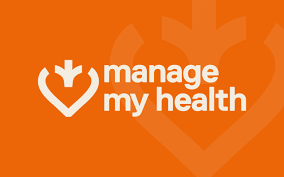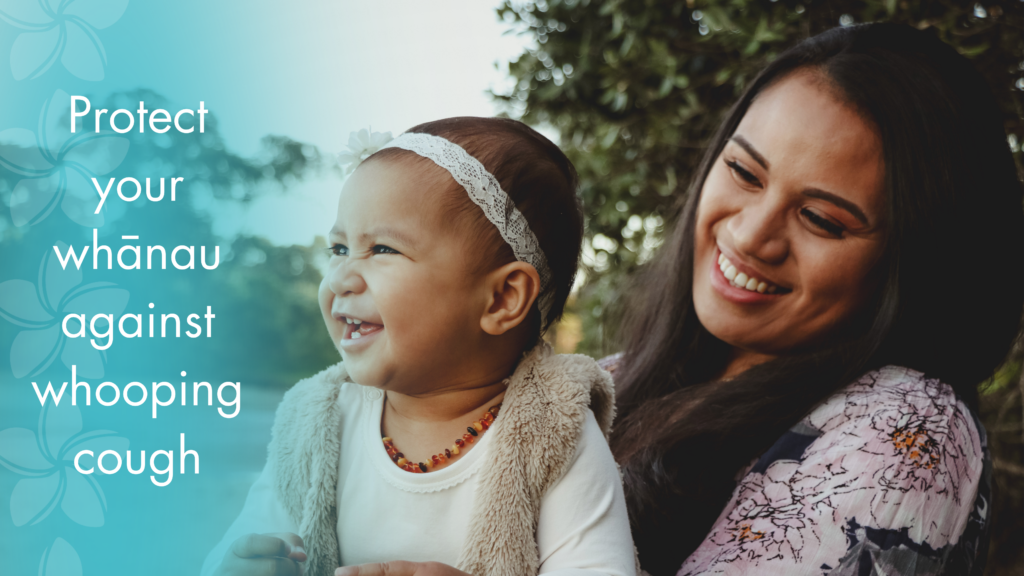
Whooping cough is a serious infection that causes long-lasting coughing. It spreads easily between people and can be especially dangerous for babies, kids, and older adults. Also known as pertussis, it is known for bringing on bouts of intense coughing, causing difficulty breathing.
The name “whooping cough” comes from the unique gasping sound made by infected individuals as they struggle to breathe during coughing fits. These episodes usually last for about 2-3 minutes, and can continue to stick around for up to 3 months.
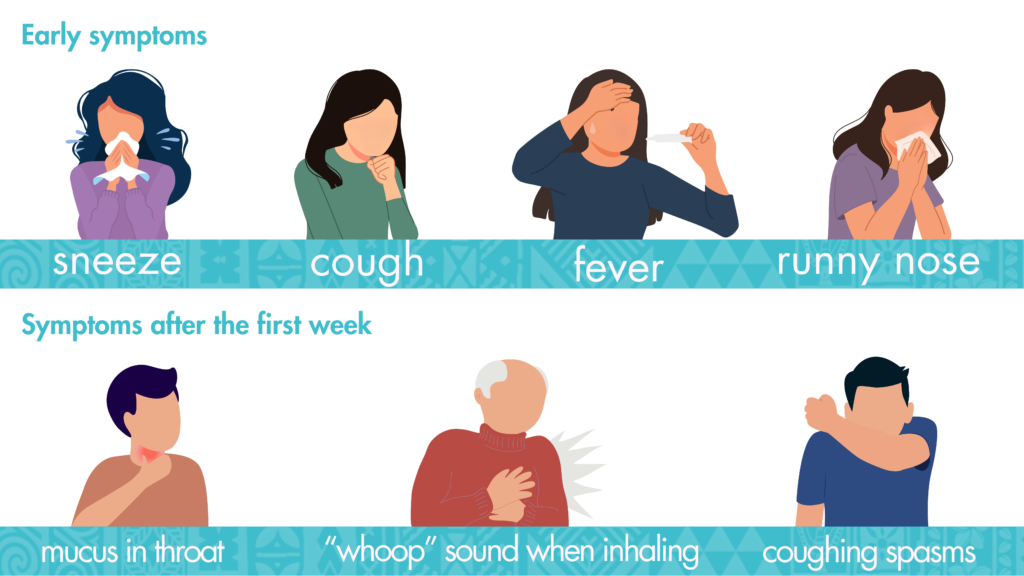
Whooping cough epidemics tend to hit every four or five years. Although cases were low during the Covid-19 pandemic, they’re starting to pick up again. In 2023 alone, eight cases have been reported, with all but one affecting children, and three of those kids ended up in the hospital.

Whooping cough spreads very easily. It transfers from one person to another when the infected person coughs and sneezes. On average, every individual with whooping cough transmits the infection to 12 others.

For most adults, it will cause discomfort and present with symptoms similar to that of the cold or flu.
For children and immunocompromised adults, it can be serious due to the severity of the cough. It can lead to severe illness, or hospitalisation. In some cases, tragically it has also lead to death.

Pertussis can be a nightmare for parents and children because there’s no antibiotic or treatment that can cure it – you just have to wait it out.
For babies under 6 months old, whooping cough can be quite unpredictable and escalate rapidly. It will initially appear to look like a common cold, and can be tricky to pick up on at first.
Keep an eye out for the below symptoms to help determine whether your pēpi has pertussis.
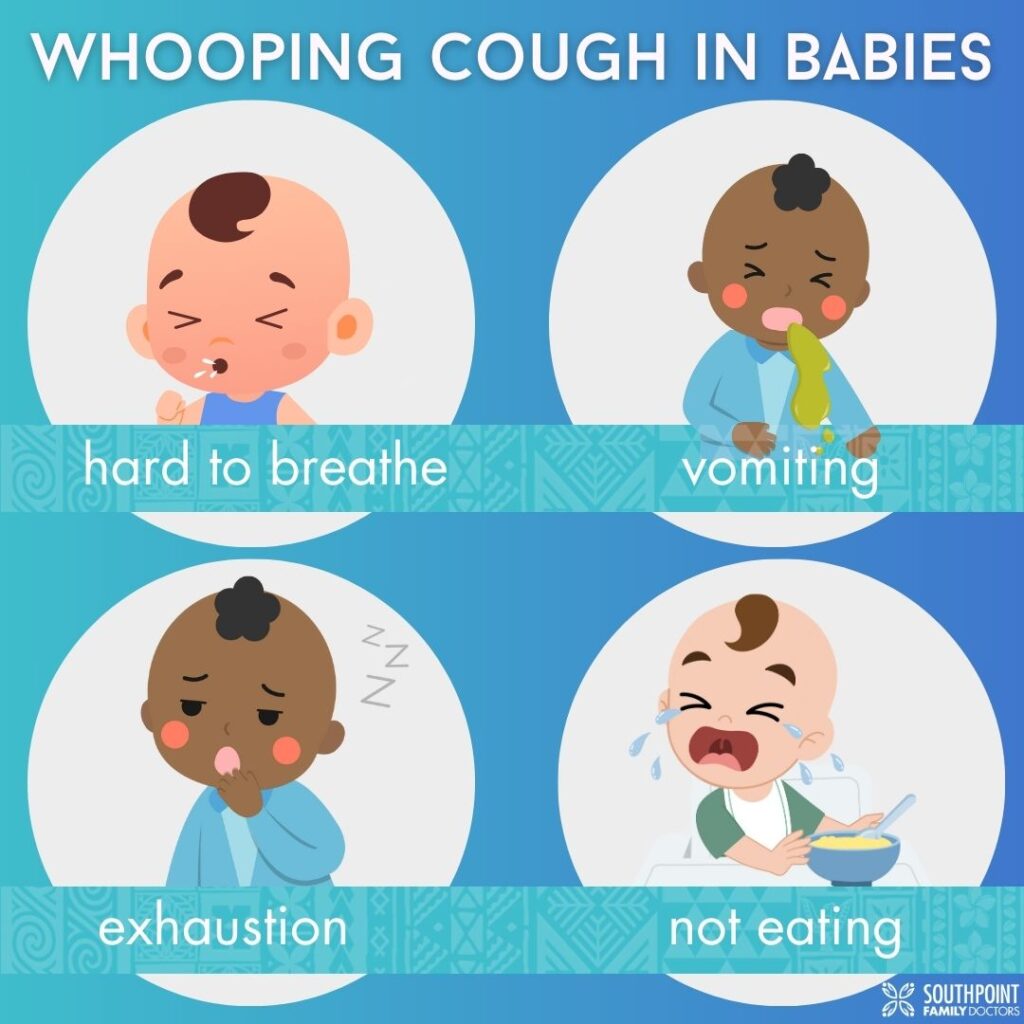
Hard to Breathe: Whooping cough can make breathing difficult for infants, causing distress. Look for signs like flaring nostrils or chest retractions, pauses in breathing, or change in colour and seek immediate medical attention if you notice any of these.
Vomiting: Babies with whooping cough may vomit due to intense coughing, making it hard for them to keep food down. If vomiting is frequent or severe, seek medical help to prevent dehydration.
Not Eating: Babies with whooping cough may struggle to eat due to discomfort from coughing or vomiting. This may also lead to weight loss due to feeding challenges. Monitor your baby’s feeding habits closely and seek medical advice if they’re refusing to eat or having difficulty feeding.
Exhaustion: Whooping cough can leave babies feeling tired and lethargic between coughing fits. Ensure your baby gets plenty of rest and contact a healthcare provider if they seem excessively tired or lacking in energy.
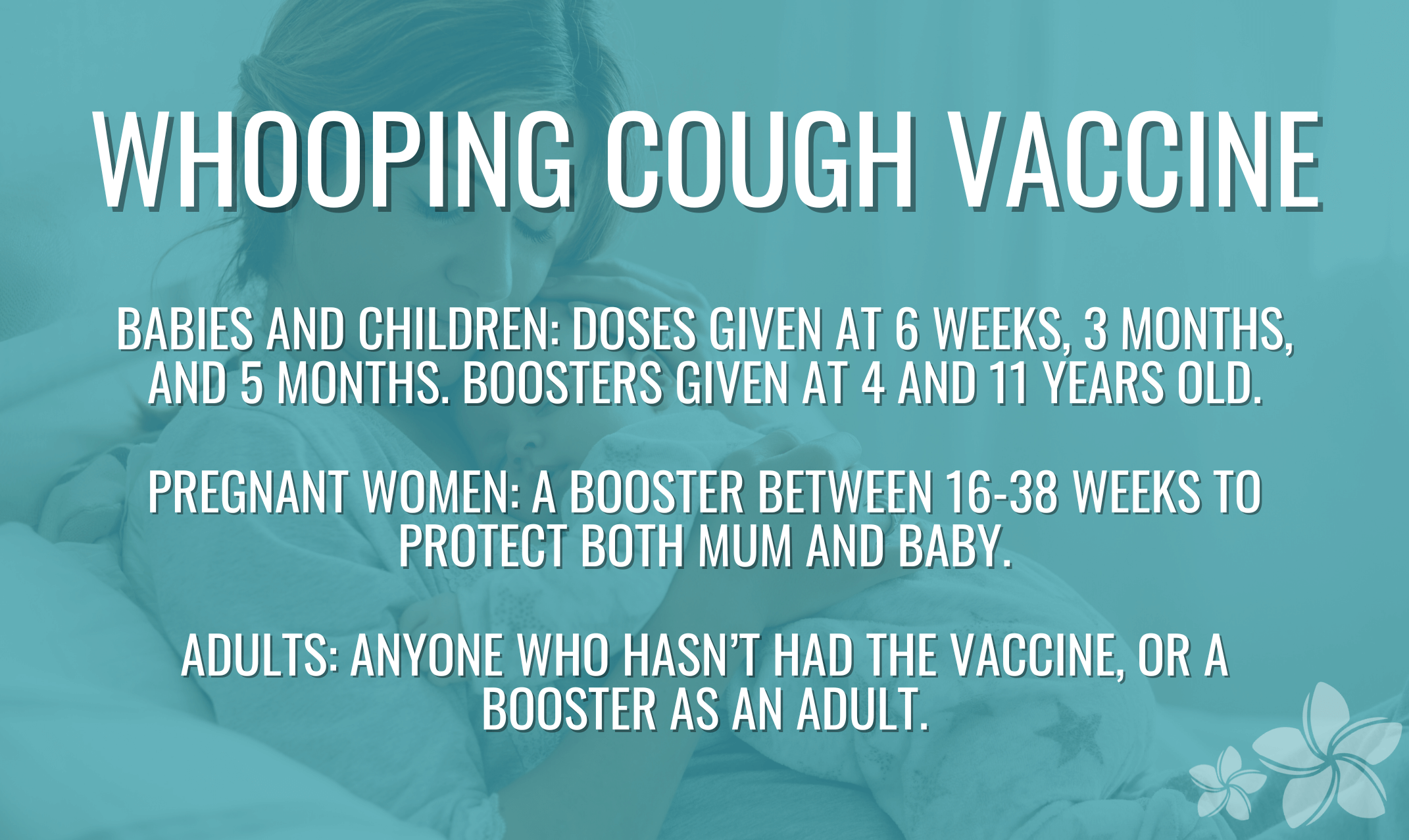
Getting vaccinated reduces your chances of contracting whooping cough, and can lessen the severity of the illness if you do happen to catch it.
Since the last outbreak in 2018 where there were four deaths reported, childhood immunisation rates have dropped from 78 percent to 69 percent. The situation is even more concerning for Māori children, whose immunisation rates have fallen from 61 percent to 49 percent.
As cases rise, it’s crucial to remember the importance of vaccinations in keeping our kids safe from pertussis. Let’s tackle this issue head-on to protect our children from this dangerous disease.
If you want to book an immunisation, or are unsure if you’ve received it, contact us today.

To find out more information about whooping cough, visit the links below:
Whooping cough Radio New Zealand article
To book a vaccination, call us on 0800 242 200 or use Manage My Health to schedule an appointment with one of our nurses.
